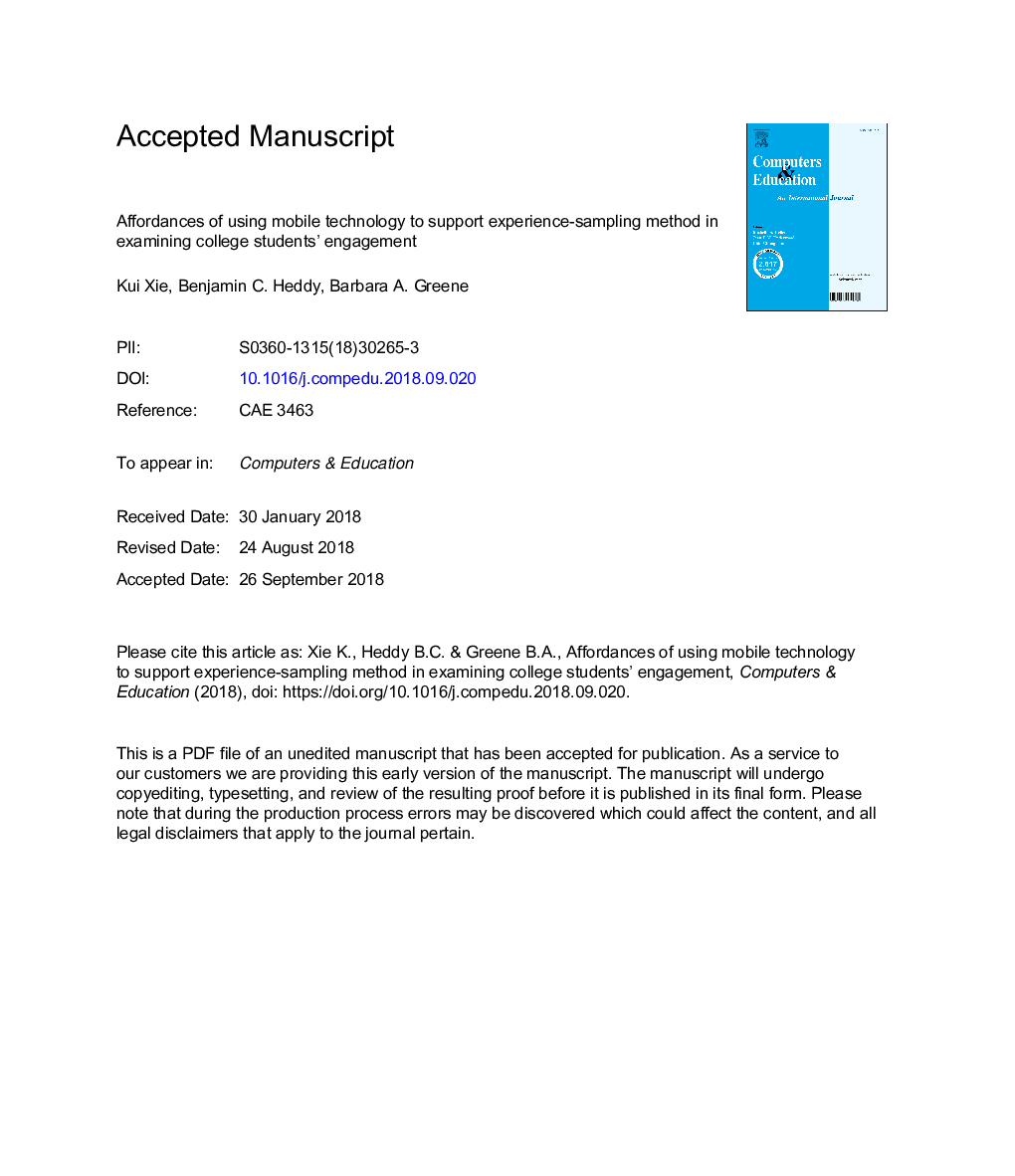| Article ID | Journal | Published Year | Pages | File Type |
|---|---|---|---|---|
| 11024033 | Computers & Education | 2019 | 37 Pages |
Abstract
In an investigation with 133 undergraduate students, we measured affective, cognitive, behavioral engagement, and self-regulation with a pre-survey, a post-survey, and in the moment of studying using experience-sampling methodology (ESM). We compared within these self-report techniques and also between self-reports and objective measures afforded by ESM. We found similar patterns that differed in detail. Furthermore, the ESM surveys allowed for a more fine-grained exploration of engagement related to studying behavior. Importantly, we compared fixed sampling and event-based sampling and found that the latter significantly improved sampling accuracy. Finally, we posit that a new and useful way to assess student self-regulation is the relationship between when students predict that they will study and when students report actual studying in the moment using ESM, which we call implementation rate. We were able to capture and examine all three dimensions of engagement (behavioral, cognitive and affective engagement) and self-regulation in authentic settings and in the same study, allowing us to examine the relationships among these variables exactly when learning occurs, which has several theoretical and practical implications.
Related Topics
Social Sciences and Humanities
Social Sciences
Education
Authors
Kui Xie, Benjamin C. Heddy, Barbara A. Greene,
